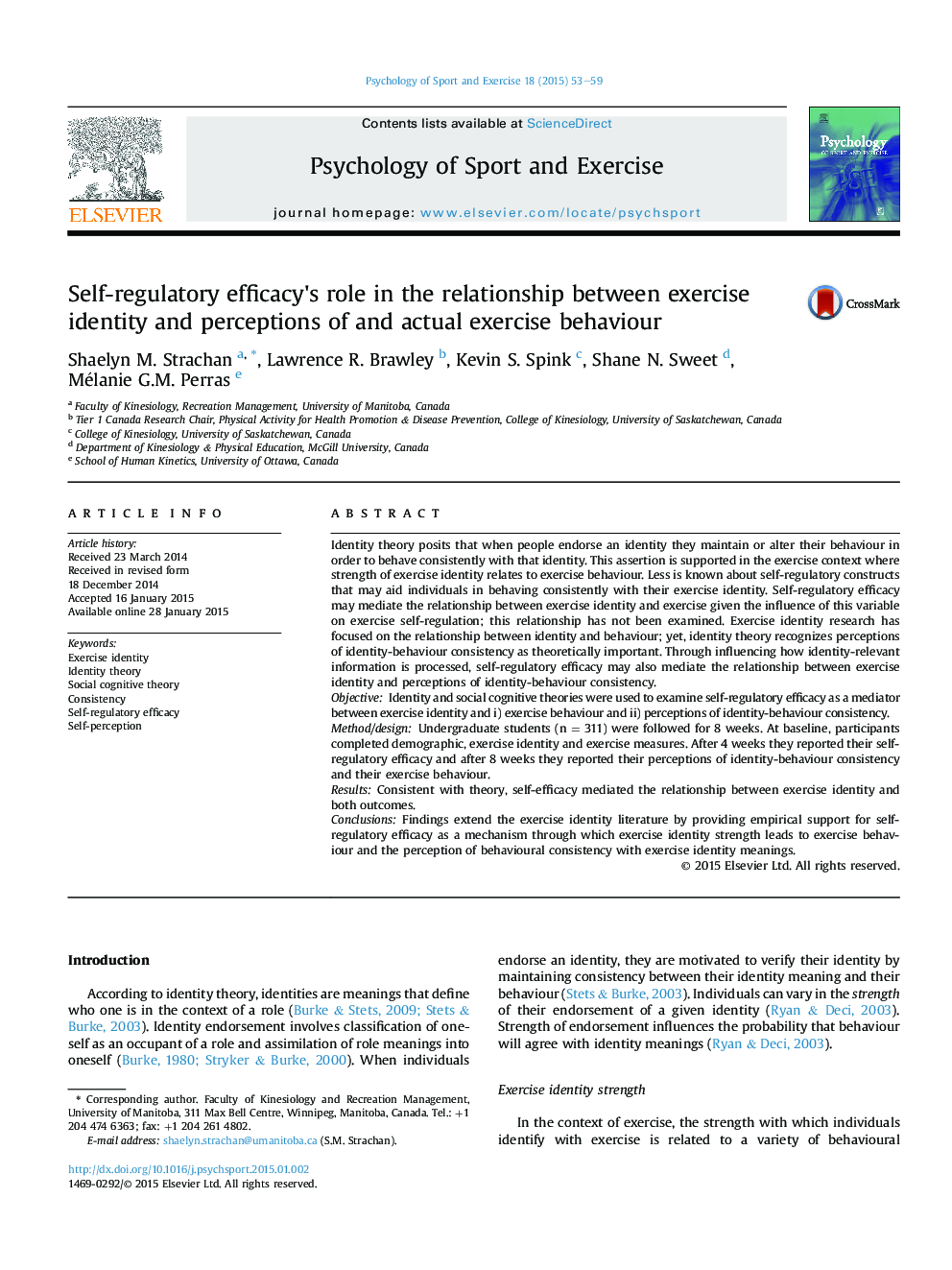| کد مقاله | کد نشریه | سال انتشار | مقاله انگلیسی | نسخه تمام متن |
|---|---|---|---|---|
| 894305 | 1472109 | 2015 | 7 صفحه PDF | دانلود رایگان |
• Mechanisms of continued identity-consistent behaviour unclear.
• Self-regulatory efficacy (SRE) may facilitate identity-consistent behaviour.
• SRE may facilitate identity-perceptions of identity-behaviour consistency relation.
• Results show SRE mediates exercise identity-exercise behaviour relationship.
• Findings extend exercise identity literature by suggesting a mechanism.
Identity theory posits that when people endorse an identity they maintain or alter their behaviour in order to behave consistently with that identity. This assertion is supported in the exercise context where strength of exercise identity relates to exercise behaviour. Less is known about self-regulatory constructs that may aid individuals in behaving consistently with their exercise identity. Self-regulatory efficacy may mediate the relationship between exercise identity and exercise given the influence of this variable on exercise self-regulation; this relationship has not been examined. Exercise identity research has focused on the relationship between identity and behaviour; yet, identity theory recognizes perceptions of identity-behaviour consistency as theoretically important. Through influencing how identity-relevant information is processed, self-regulatory efficacy may also mediate the relationship between exercise identity and perceptions of identity-behaviour consistency.ObjectiveIdentity and social cognitive theories were used to examine self-regulatory efficacy as a mediator between exercise identity and i) exercise behaviour and ii) perceptions of identity-behaviour consistency.Method/designUndergraduate students (n = 311) were followed for 8 weeks. At baseline, participants completed demographic, exercise identity and exercise measures. After 4 weeks they reported their self-regulatory efficacy and after 8 weeks they reported their perceptions of identity-behaviour consistency and their exercise behaviour.ResultsConsistent with theory, self-efficacy mediated the relationship between exercise identity and both outcomes.ConclusionsFindings extend the exercise identity literature by providing empirical support for self-regulatory efficacy as a mechanism through which exercise identity strength leads to exercise behaviour and the perception of behavioural consistency with exercise identity meanings.
Journal: Psychology of Sport and Exercise - Volume 18, May 2015, Pages 53–59
